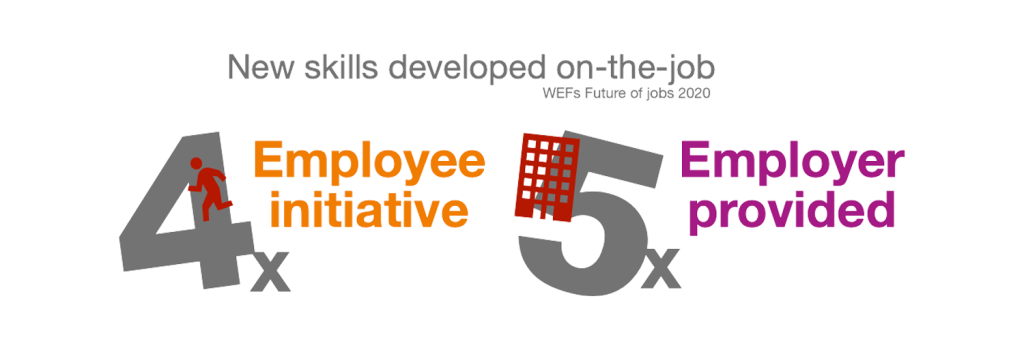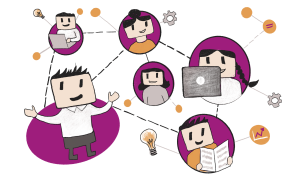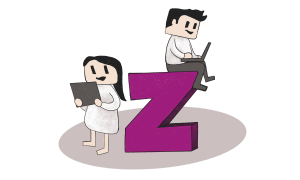Maintaining growth and competitiveness in this age of innovation means adopting new technologies before competitors can. In the fight to attract specialised talent or find the skills required means a rethink across the entire business, from hiring, to reskilling and growing talent.
The World Economic Forum’s ‘The Future of Jobs Report’ 2020 suggests that the pace of technology change along with the global pandemic has caused a double disruption to both workers and employers.
Skills gap, talent gap and leadership gap.
The WEF’s report postulates that the barriers to organisations adopting new technologies is obviously a local skills gap and an inability to attract specialised talent.
Some 95% of business leaders surveyed in the report now expect their employees to pick up new skills on the job, a 30% increase from 2018. And more than half expect to get a return on those new skills within one year.
How will those new skills be developed on-the-job?

Employees are keen to learn. There has been:
- 4x increase in individuals using their own initiative to seek learning online.
- 5x increase in employers providing online learning opportunities.
Call for fundamental reform in learning systems.
The WEF’s report called for a revolution in the way education and training systems operate, and the way business approaches training its workers with new skills.
How? Nanodegrees.
US telecommunication company AT&T partnered with Udacity to create a curriculum that bridged their existing skill gaps to support its emerging business needs.
More than 50 ‘nanodegrees’ were created in web and mobile development, data science and machine learning. Employees were trained online including the use of bite-sized videos and interactive exercises through real-world projects supported by coaches and peers. The company invested $US200 million per year, delivered more than 4200 career pivots, filling more than 70% of jobs internally.
Learning outcomes needed to be work ready.

The learning moved away from passive video lectures or presentations to an instructional design, where technology meets pedagogy, so that learners learn the concepts and then practise them immediately, and reflect on them resulting in moving the business forward.
Such a solution works by starting with a strategy that includes a clear purpose and plan effectively promoted across the business. A robust structure with a learning framework, facilities and finance underpins the support delivered to learners with coaches and peer-to-peer learning in communities of practice.



